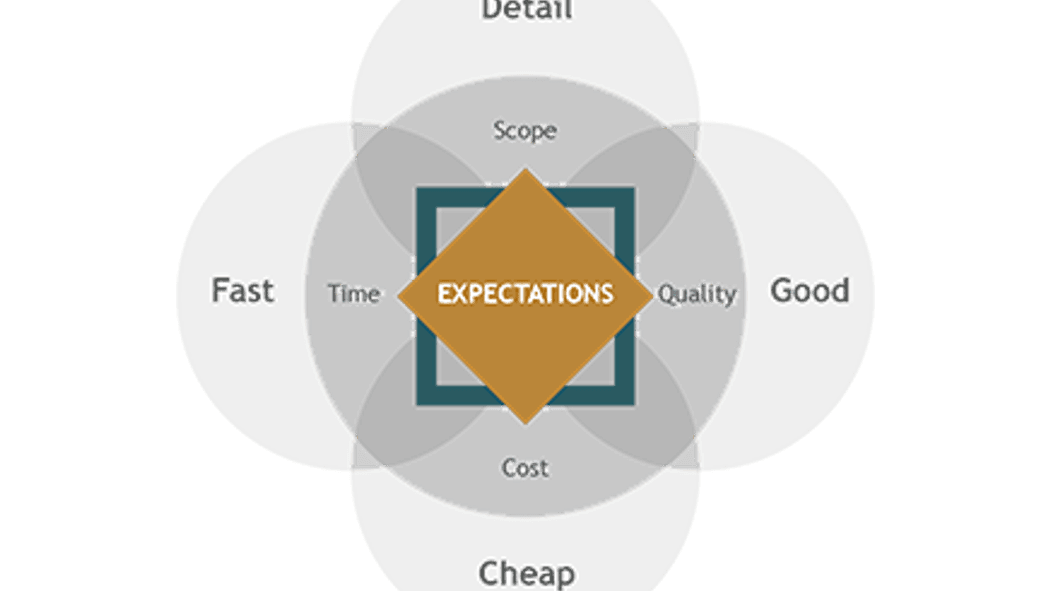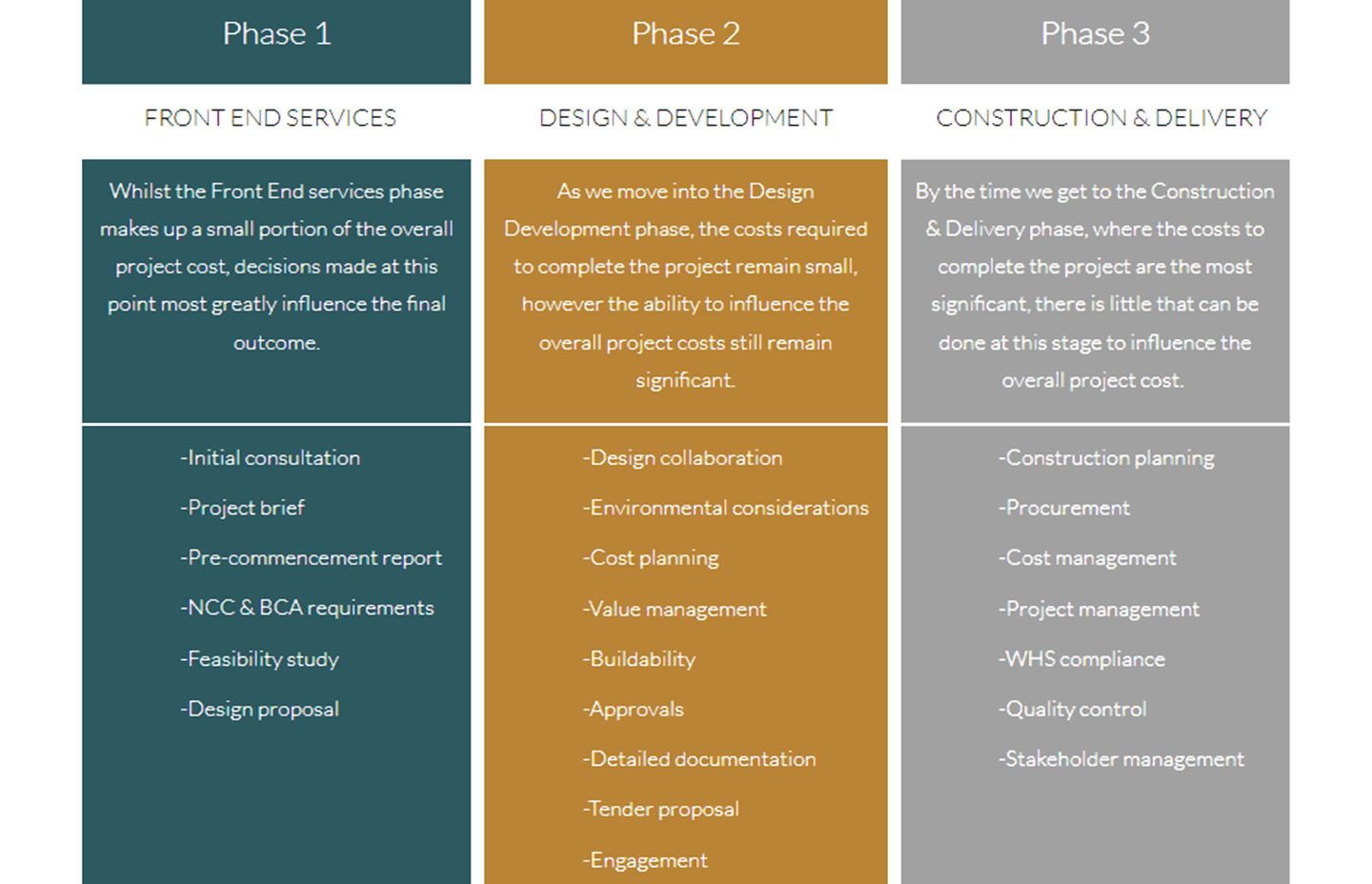URBAN MODEL

The success of a project is often determined by the process in which the preliminary stages are managed. Understanding the development process ensures that projects are managed for success whilst spending capital only as it is required.
Urban Revolutions has a philosophy of taking a staged approach whereby milestones are reached and then re-evaluated prior to moving to the next stage of the process.

Setting Expectations
All construction projects are performed and delivered under different constraints. These constraints are unique to each project and are typically driven by internal and external factors.
Some clients seek out the cheapest price; some want the project constructed in the shortest time possible, while others seek the best quality outcome and there are others who seek to have the maximum amount of inclusions. Satisfying all four requirements is extremely difficult as one constraint typically opposes another.
Of critical importance, is to ensure that your designer and builder’s ability to deliver are aligned with your expectations on outcomes. Considering that the interpretation of ‘Quality’ is different to every client, aligning outcomes is best achieved when meeting ‘Quality expectations’ and then helping the client understand the cost impact, the level of inclusions and the time required to deliver the desired outcome.
We will help to develop your list of expectations and desires whilst aligning opposing constraints.
3 Step Model
The builder is part of your team — so get them involved early.
The most successful projects are based around a relationship built upon trust. A partnering approach focuses on building relationships between all stakeholders.
This relationship goes way beyond the building of the home.
Upon agreeing to building your new home, you will be connected to your builder for the building period and the next 7 years following, as this is typically the structural warranty period. It is therefore important that you feel comfortable in having a relationship for that period of time.
Experience has shown us that the inclusion of a builder early in the design and planning stages has a greater positive impact on the success of a project.
Involving construction expertise into the design process will ensure value engineering at the time of design, help you eliminate avoidable cost blowouts and will likely save you money.
We’ve developed an easy 3 step model to simplify the process and ensure that we reduce overall project risks and costs.

Actual Cost vs Influence on Cost Model
This graph demonstrates the value of a builder early in the front-end phase.
Whilst the overall cost of design is likely to be around 5% of the overall construction, building knowledge at this stage can influence up to 55% of the final cost.
Conversely, if the builder is brought into the project at the construction and delivery stage, the overall cost of the project is approximately 85% committed and the builder’s ability to positively impact on the overall project cost has diminished to approximately 10%.
Therefore, it is critical to align client objectives and budget in Phase 1 by involving the builder upfront, create the right design for the client in Phase 2 and then deliver a final outcome in Phase 3.
By dedicating the adequate amount of time and planning upfront, the client can reduce overall project risk and costs.

